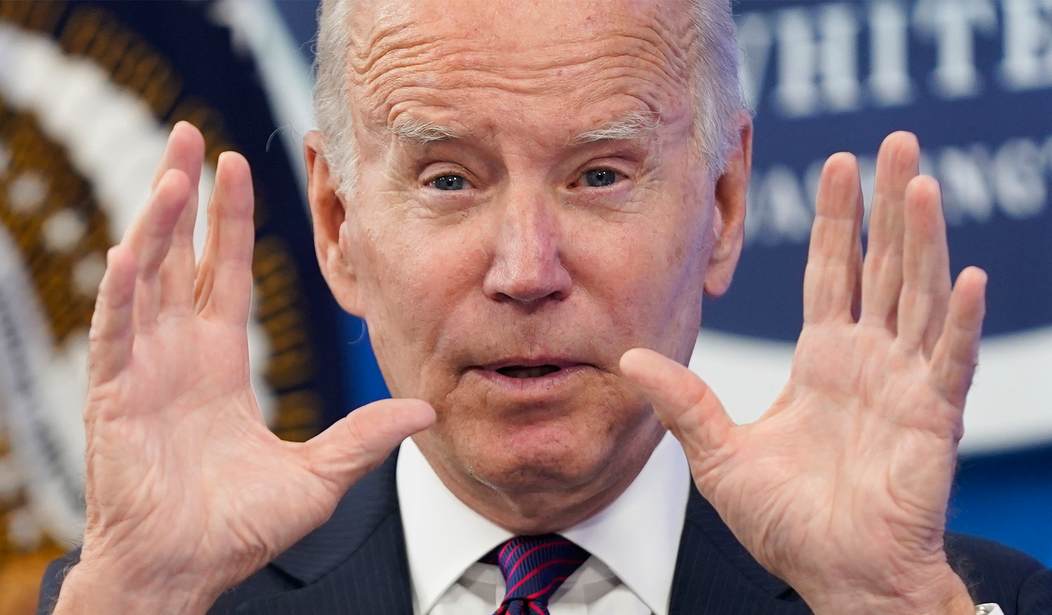During a 60 Minutes interview that aired on Sunday, Joe Biden freely admitted that his student loan forgiveness plan was illegal and unconstitutional.
“The pandemic is over. We still have a problem with COVID. We’re still doing a lot of work on it. But the pandemic is over,” said Biden.
“The pandemic is over. We still have a problem with COVID. We’re still doing a lot of work on it. But the pandemic is over,” President Biden tells 60 Minutes in an interview in Detroit. https://t.co/7SixTE3OMT pic.twitter.com/s5fyjRpYuX
— 60 Minutes (@60Minutes) September 19, 2022
But the entire legal basis for Joe Biden’s student loan forgiveness plan rests on the fact that there was a national emergency due to the pandemic. Under the 2003 HEROES Act, a post 9/11 law that, according to Reason.com, “permits the Secretary of Education to waive or modify Federal student financial assistance program requirements to help students and their families or academic institutions affected by a war, other military operation, or national emergency,” Biden was able to have at least the fig leaf of a legal justification for student debt forgiveness.
But there is no pandemic national emergency according to Biden, thus removing the fig leaf and exposing Biden’s student debt forgiveness plan as a political gambit to curry favor with a favored constituency — college-educated professionals.
Back in August, Biden’s lawyers argued with half-straight faces that the 2003 HEROES Act — which, as Bloomberg Law has noted, was passed not as a generalized enabling act but “to help borrowers serving in the military in the wake of the Sept. 11 attacks” — could be twisted to apply to any national emergency, including pandemics such as Covid-19. This, of course, was nonsense. Among the specific problems with Biden’s argument was that the 2003 HEROES Act does not cover debt cancelation (i.e., transference to taxpayers); that its “direct economic hardship” language does not allow for mass relief; that the application of its “or national emergency” language clearly violates the major questions doctrine; and that the administration’s insistence that the act was designed to allow the executive branch “to act quickly should a situation arise that has not been considered” was flatly contradicted by the fact that the president waited until two-and-a-half years into the pandemic before acting, and then gave relief to the most privileged people in America.
No doubt the courts will take note of the president’s declaration that the pandemic is over — as long as a litigant with “standing” can be found to sue him.
That effort is well underway and is only waiting for the Department of Education to unveil the website where borrowers can apply.
The Supreme Court has ruled that merely being a taxpayer does not provide the necessary standing to challenge an allotment of government funds alleged to violate the Constitution.
“[Biden’s loan forgiveness plan] is unfair but you can’t take unfair to court,” said Job Creators Network president Alfredo Ortiz.
One path some groups are exploring is finding a plaintiff who is a private citizen earning just above the income threshold, or who put themselves through school while working and has already paid off their loans.
Loan servicers might seek standing by arguing that the administration’s action led them to lose money they might otherwise have made.
Some Republican state attorneys general, including Mark Brnovich in Arizona and Eric Schmitt in Missouri, have indicated early interest in arguing standing, though details are not yet clear.
Biden’s admission that the pandemic is over may be key to winning a suit. But before it can be won, the issue of standing will need to be resolved. Whether it’s done via a class action suit like state AGs suing the Biden administration or individuals filing suit, there’s no guarantee that the courts will recognize anyone being “injured” as a result of student loan forgiveness.










Join the conversation as a VIP Member